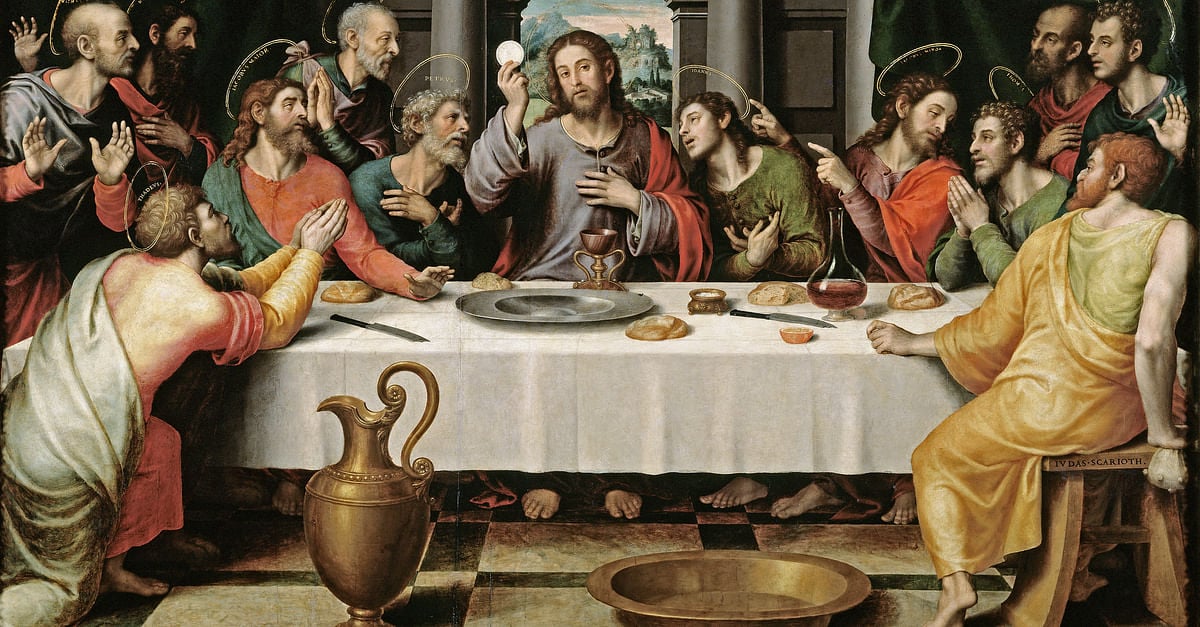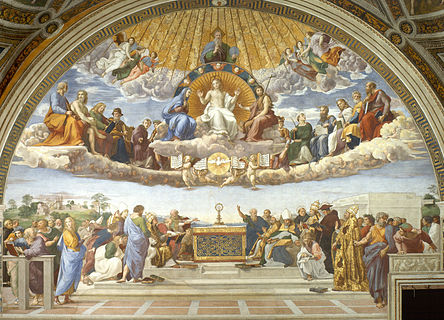Throughout the centuries, Christianity has changed and evolved in various ways. The core beliefs of Christianity remain consistent, but the interpretations of these beliefs have shifted to better fit the times. This blog post will look at how the dogma of Christianity has evolved over the years, from its early days to the present day. We’ll explore how the definition of Christianity has changed, how its beliefs have shifted, and how this has shaped the religion into what it is today.
The origins of Christianity and its dogma
Dogma is a set of beliefs that are held by a religion or organization. In Christianity, dogma refers to doctrines, beliefs and practices that have been accepted by the church as essential truths. Throughout history, Christianity’s dogma has gone through many changes, adapting and evolving to fit the needs and values of different eras.
One of the earliest changes to Christian dogma was the addition of new rules and regulations to ensure unity among members of the faith. For instance, during the 4th century CE, the Council of Nicaea created a creed—or a written statement of belief—that all Christians were expected to accept and follow. This document became known as the Nicene Creed and is still used in many churches today.
Throughout the Middle Ages, Christian dogma underwent further changes and additions. During this period, theologians and philosophers developed new ideas about God and Jesus that shaped the way people viewed Christianity. One important figure from this time was Thomas Aquinas, who wrote Summa Theologica, an extensive theological work that established some core beliefs for Catholic Christians.
As Christianity spread around the world, its dogma was adapted to meet the needs of new cultures and traditions. Today, there are thousands of different denominations within Christianity, each with their own unique set of beliefs. While some Christians may disagree on certain points of doctrine, they all share a common commitment to loving God and their neighbor as themselves.
Ultimately, the dogma of Christianity has changed significantly since its beginnings in the first century CE. It has adapted to different cultures and centuries while continuing to espouse its core message: love God, love your neighbor, and strive for holiness in everything you do.
 How Christianity’s dogma has changed over time
How Christianity’s dogma has changed over time
Christianity is a religion that has been around for centuries, with its followers developing and redefining its doctrine over time. Christianity’s dogma is an integral part of the faith, providing a basis for the beliefs, values, and principles that its adherents follow. The doctrine of Christianity has evolved significantly over the years, adapting to changing cultural and social contexts while still remaining true to its core teachings.
The earliest Christian writings date back to the first century A.D., providing insight into the doctrines and beliefs held by early believers. One of the most important teachings of the early church was that of monotheism, which states that there is only one true God. This belief developed into a more concrete set of beliefs regarding the nature of Jesus Christ as the Son of God, who was sent to earth to redeem humanity from their sins.
Over the years, different denominations of Christianity have put forward their own interpretations of the Bible and its teachings. While these interpretations can vary widely from denomination to denomination, many core Christian beliefs remain constant. These beliefs include faith in Jesus Christ as the savior of mankind, the centrality of the Bible as divinely inspired scripture, and the necessity of baptism and prayer.
In addition to these core beliefs, Christianity’s dogma has changed significantly over time. For example, many Christians today do not hold to a literal interpretation of the Bible, instead believing that it should be read metaphorically and interpreted in light of modern understanding. This type of interpretation has led to a greater emphasis on social justice issues such as racism, poverty, and women’s rights, among others.
The evolving dogma of Christianity also means that many of its adherents are more accepting of different types of worship practices and religious views. While some denominations may adhere strictly to a certain set of beliefs, other Christians are more open-minded and tolerant of those who don’t necessarily agree with them. This has led to increased dialogue between various denominations and even between different religious faiths.
Christianity’s dogma has changed significantly over time, reflecting a greater understanding of scripture and allowing for more meaningful dialogue between denominations and other religious traditions. Through this evolution in doctrine, Christianity continues to be an influential force in the lives of many people today.
 The different interpretations of Christianity’s dogma
The different interpretations of Christianity’s dogma
The concept of dogma has been around since the beginning of Christianity, but its interpretation has changed over time. In its most basic form, dogma is defined as a set of beliefs that are held to be true without proof or evidence. It is a core part of any religion and Christianity is no exception.
In the early days of Christianity, dogma was viewed as a set of rules and regulations that people had to adhere to in order to be considered a Christian. This often included strict rules about diet, clothing, and behavior. This was seen as necessary in order for Christians to stay faithful to their religion.
However, over time, the concept of dogma began to evolve. People began to look at it less as a set of rules and more as a set of core beliefs that Christians should strive for. This includes beliefs about the divinity of Jesus, his mission on earth, and his resurrection. These beliefs became the foundation of Christian theology and have been used to shape different interpretations of Christianity throughout history.
Dogma has also become an integral part of how Christianity is practiced today. Many denominations place great emphasis on dogma and use it to help guide their members in how they should live their lives. From choosing what kind of worship services to attend, to how they should interact with those outside the faith, dogma serves as a framework for living a life that is dedicated to Christianity.
No matter how dogma has evolved over the years, it remains an important part of Christianity today. It serves as a set of beliefs that many Christians strive to uphold and has helped shape how Christianity is practiced around the world.
 The impact of Christianity’s dogma on society
The impact of Christianity’s dogma on society
Christianity’s dogma has had a tremendous impact on society over the centuries. Since its inception, Christianity has maintained a set of core beliefs and doctrines that have helped shape the course of history. These teachings have become embedded in our culture and many of them are still held as truths today.
Dogma is an integral part of Christianity and has been used to govern how individuals interact with one another, as well as how people treat their environment. Dogma is a set of teachings, rules and regulations that are designed to create a moral framework within which individuals can live. Christianity’s dogma is based upon the Bible, which lays out the specific laws, ethical codes and values that followers should abide by.
Throughout the centuries, Christianity’s dogma has had a significant impact on our society. From the Early Church Fathers to the Reformers and Counter-Reformers, Christianity has been a major influence on how we view and behave in our world today. The teachings of Jesus on love, forgiveness, grace and compassion have been embraced by countless generations and have shaped our understanding of morality. Furthermore, Christian ideas about sin, repentance, and redemption have provided a basis for ethical decision making.
Ultimately, Christianity’s dogma has had a powerful impact on society that continues to this day. Its teachings have formed the basis for many of our social norms and continue to shape our beliefs about right and wrong. As Christians, it is important for us to continue to study and practice the beliefs we have inherited from our ancestors so that we can better understand the impact these teachings have had on our culture and our lives.


2 thoughts on “History of Christianity Religion 2022”